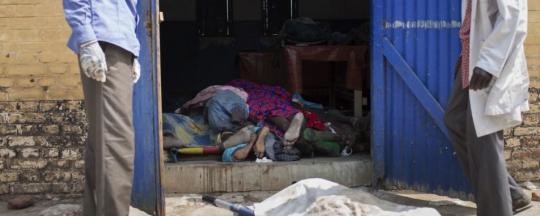Human Rights Watch has called for IGAD mediators in Addis Ababa to avoid drafting a peace deal that grants amnesty to war criminals, calling instead for “criminal investigation and prosecution in accordance with international standards.”
The international human rights group cited reports that give “reasonable grounds to believe that crimes against humanity have been committed during the conflict by both government and opposition forces.”
Peace negotiations are scheduled to resume this week in Addis Ababa, Ethiopia, mediated by the Intergovernmental Authority on Development (IGAD), an East African regional body.
In a press statement ahead of the resumption of the talks, the rights group said, “Fair and credible prosecutions of serious crimes build respect for the rule of law.”
“The mediators should ensure that there is no amnesty for those responsible for serious crimes,” Human Rights Watch (HRW) said.
The rights group’s position is likely to be opposed by government and rebel negotiators. Neither side has prosecuted any of their own commanders or soldiers, nor proposed the inclusion of justice provisions in the terms of a peace agreement.
South Sudan’s cabinet minister last month said he supports the idea of a ‘general amnesty’ for both parties to the conflict, and SPLA soldiers detained on suspicion of committing crimes in Juba in mid-December are now said to have escaped.
Open letter to mediators
Daniel Bekele, Africa Director at Human Rights Watch, addressed an open letter to the three IGAD special envoys, Ambassador Seyoum Mesfin, General Lazarus Sumbeiywo, and General Mohammed Ahmed Moustafa El Dabi, copying diplomats of the Troika countries and European Union, which back the mediation process diplomatically and financially.
He noted, “As has often been the case in the South Sudan context in the past, the parties to the conflict may propose a peace deal that provides for amnesty.”
The rights activist opposed this idea, arguing,“The devastating crimes of the conflict in South Sudan have their roots in the lack of justice for brutal crimes during the long war. The mediators need to break with the past by ensuring that amnesty for serious crimes is not on the table.”
“Even in the context of the current crisis, the lack of accountability continues to drive the conflict, with many attacks carried out in reprisal for prior attacks based on ethnicity.”
‘No one is above the law’
Human Rights Watch pointed out that the 2005 Comprehensive Peace Agreement did not include provisions for accountability for serious crimes committed during the civil war.
“The memory of the crimes committed during the civil war and the lack of accountability helped fuel the current crisis,” says Human Rights Watch.
In order to change this pattern, the rights group contends, “Prosecutions send the message, especially to would-be perpetrators, that no one is above the law… [this] helps cement peace and stability, in addition to giving redress to victims.”
Photo: The morgue at the Malakal Teaching Hospital after attacks on the city in January 2014 (AP)
Related:
South Sudan cabinet minister supports ‘general amnesty’ idea (26 May)
South Sudan reconciliation platform to gather ‘body of truth’ (14 April)




